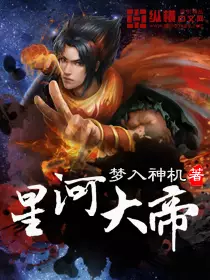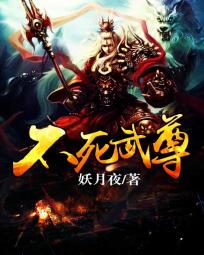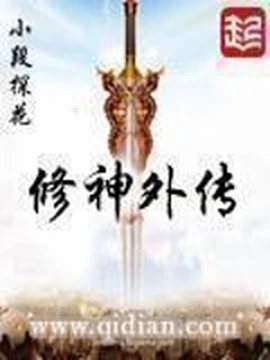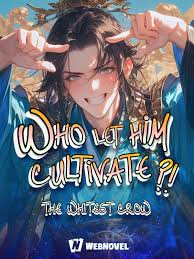The Story in 3 Sentences
Reborn into the mythic Primordial Era just before the cataclysmic God-Conferment War, Li Changshou—a minor cultivator with no grand destiny—vows to live quietly, avoid karma, and cultivate steadily toward immortality without drawing attention.
His meticulously cautious plans begin to unravel when his master adopts a junior sister, thrusting him into a web of divine politics, ancient schemes, and chaotic entanglements that he can no longer escape through preparation alone.
Though he strives to remain invisible, every calculated move he makes inadvertently reshapes the fate of gods, demons, and mortals alike, turning his dream of peaceful longevity into an epic of reluctant heroism.
Why It Stands Out
1. The Art of Paranoia as Survival
Unlike typical hot-headed cultivators who charge headfirst into danger, Li Changshou treats every decision like a life-or-death chess match, preparing layers of backup plans, disguises, poisons, and escape routes—making his caution not a weakness but his greatest weapon. This inversion of the reckless xianxia protagonist creates a uniquely tense and cerebral narrative where survival hinges on restraint, not brute force.
2. Mythology Woven with Modern Wit
Set against the rich tapestry of Chinese myth—featuring figures like Nuwa, the Three Pure Ones, and characters from Investiture of the Gods—the novel doesn’t just name-drop legends; it reimagines them through a comedic, strategic lens that respects their lore while injecting fresh personality. Readers unfamiliar with the myths aren’t lost; the story guides them gently, blending reverence with irreverent humor.
3. Comedy That Serves Character, Not Just Gags
The humor arises organically from Li Changshou’s extreme risk-aversion clashing with a world determined to drag him into chaos. Whether he’s faking his death for the tenth time or negotiating with a sea god while disguised as a wandering herbalist, the laughs stem from character logic, not forced slapstick—making the comedy feel earned and deeply integrated into the plot.
Characters That Leave a Mark
There’s Lan Ling’e – Li Changshou’s childhood friend and eventual wife, whose earnest warmth and unwavering loyalty contrast beautifully with his paranoia, often becoming the emotional anchor that pulls him back from total isolation.
You’ll meet Yun Xiao, who embodies icy grace with hidden fiery devotion; a powerful immortal from the legendary Three Sisters of the Cloud, she challenges Li Changshou’s detachment with quiet strength and becomes a pivotal ally in divine conflicts.
And Youqin Xuanya? They’re the one who starts as a seemingly troublesome junior sister but evolves into a complex figure tied to mortal dynasties and celestial missions, her actions often triggering key turning points that force Li Changshou out of his comfort zone.
The Flaws Fans Debate
Some readers argue the novel becomes repetitive, relying too heavily on the “over-planning” gimmick until every conflict feels resolved by yet another hidden contingency rather than genuine character growth or narrative surprise.
Critics note that despite Li Changshou’s stated desire to avoid entanglements, he often passively allows romantic and political complications to accumulate, creating a dissonance between his philosophy and his inaction.
A recurring complaint is the inconsistent translation quality past chapter 60, which some say undermines the novel’s nuanced humor and strategic depth, making later arcs harder to enjoy for English-only readers.
Must-Experience Arcs
Ch. 1–60: Mountain Hermit’s First Stir – Li Changshou establishes his survival doctrine in seclusion, refining poisons, practicing escape arts, and avoiding all contact—until his master brings home Lan Ling’e, shattering his peace and setting off a chain of low-stakes but high-tension comedic schemes.
Ch. 100–260: Sea God and Celestial Schemes – Drawn into a conflict with a regional sea deity, Li Changshou navigates divine bureaucracy, mortal cults, and hidden agendas, showcasing his ability to manipulate events from the shadows while dodging karmic backlash.
Ch. 500–700: God-Conferment Crucible – As the mythic war looms, Li Changshou’s preparations collide with fate; he orchestrates grand deceptions among immortals, sacrifices identities, and ultimately influences the very structure of heaven and earth, all while insisting he just wanted to live quietly.
Killer Quotes
“Better to lose a thousand opportunities than gain one ounce of unnecessary karma.”
“A cultivator’s greatest enemy isn’t demons or rivals—it’s the illusion that today’s safety guarantees tomorrow’s.”
“Plan once, prepare thrice, vanish before they notice you were ever there.”
Cultural Impact
The phrase “too steady” became a meme in xianxia circles, used to describe any overly cautious or meticulous behavior, often accompanied by images of Li Changshou sipping tea while chaos erupts around him.
Fans frequently compare it to “The Spiritual Attainment of Minghe” for its mythological depth, but praise it for having a more proactive and relatable protagonist who doesn’t rely on plot armor.
It sparked debates across Reddit and Webnovel forums about whether “smart MC” cultivation stories can sustain long-term engagement without devolving into formulaic trickery.
Final Verdict
Start Here If You Want:
A xianxia novel where brains consistently beat brawn, and every victory feels earned through preparation rather than destiny.
A rare blend of mythological grandeur and grounded, slice-of-life comedy that never loses its narrative focus.
A protagonist who subverts the genre’s usual arrogance—calm, pragmatic, and refreshingly human in his fear of death.
Study If You Love:
Narratives that explore the tension between free will and predestined myth, using Chinese cosmology as a living framework rather than mere backdrop.
The evolution of comedic structure in web fiction—how repeated character traits can generate both humor and thematic depth over hundreds of chapters.
The subtle critique of cultivation tropes, where “ascension” is less about power and more about the cost of involvement in a world that rewards recklessness.
Avoid If You Prefer:
Fast-paced, action-driven plots with minimal scheming or internal monologue.
Stories with a single, linear romance or no romantic subplot at all—this novel leans into harem elements, however lightly handled.
Narratives that avoid meta-commentary or self-awareness; the novel knowingly plays with genre expectations, which may feel gimmicky to purists.





